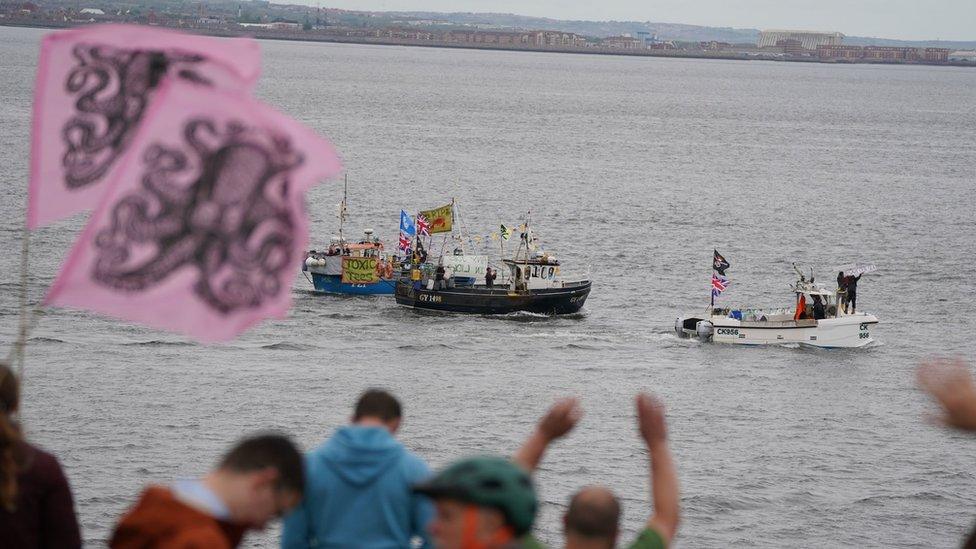Tees shellfish die-off: Tests find pyridine 'unlikely' to be cause
- Published
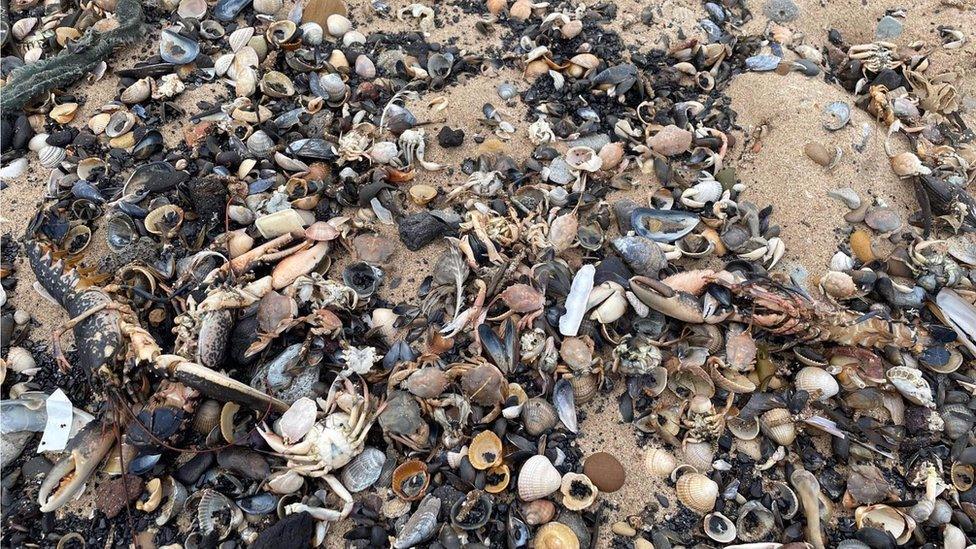
Dredging of the River Tees was blamed for causing shellfish deaths
A government-commissioned study agrees with independent findings that an industrial chemical is unlikely to have caused the mass death of shellfish.
In 2021 thousands of dead crustaceans washed up along the North East coast.
The Centre for Environment Fisheries & Aquaculture Science (Cefas) has reanalysed shellfish samples for the presence of pyridine.
Their report supports independent conclusions and says it is unlikely pyridine caused the die-off.
There has been widespread speculation about the cause of the shellfish deaths, but it is hoped the latest report will draw a line under the issue.
The government previously blamed harmful algae for the die-off, while fishers commissioned a report that linked it to dredging in the River Tees, suggesting the industrial chemical pyridine was responsible.
In January this year, a panel of independent experts said a disease or parasite new to UK waters could have been the cause, with dredging of the Tees and pyridine described as "very unlikely" to be behind the loss of marine life.
However, when the panel met, no method existed to test for the chemical in animal tissue.
Subsequently, Defra commissioned Cefas to develop a robust method and to re-analyse crab tissue samples collected during the incident.
In research reported today, scientists used the new method to discover low levels of pyridine in the crab tissue and sediments, supporting the previous conclusion of the expert panel that it is unlikely to have caused the deaths.
Gideon Henderson, Defra's chief scientific adviser, said the research had enabled accurate and reliable measurements to be taken, adding that it would be a useful tool to assess potential pollution issues in future.
'This has been an incredibly difficult time'
Redcar's Conservative MP Jacob Young welcomed the report and said he hoped it would bring an end to "politically motivated" debate and settle questions raised by the public.

Redcar's MP Jacob Young says he hopes the latest report will end speculation
"We've now had multiple investigations," he said, "conducted by some of the country's best scientific minds and marine life experts, all of which have said they believe the die-offs were a naturally occurring event, which couldn't have been prevented.
"For anyone concerned about our coast and marine life, and for the fishermen who have lost their livelihoods after the initial die-off, this has been an incredibly difficult time."
Rachel Creevy, Hartlepool councillor and vice-chair of the Crustacean Deaths Collaborative Working Group, said there was likely to be further scepticism over the latest findings, adding that trust on the issue had been lost between the public and the government.
She said the cross-party group had not been given a copy of the new report and criticised a "lack of engagement" from authorities handling the government's investigations, adding: "We would love to see more engagement as we are raising serious questions about the management of our environment.
"The management of our seas is not robust enough."

Follow BBC Tees on Facebook, external, X (formerly Twitter), , externaland Instagram, external. Send your story ideas to northeastandcumbria@bbc.co.uk, external.
- Published19 May 2023
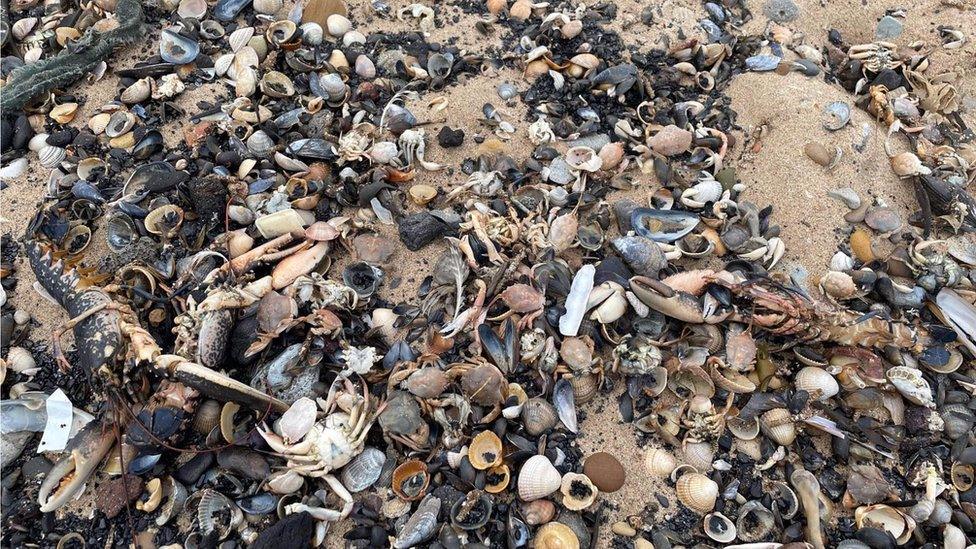
- Published3 May 2023
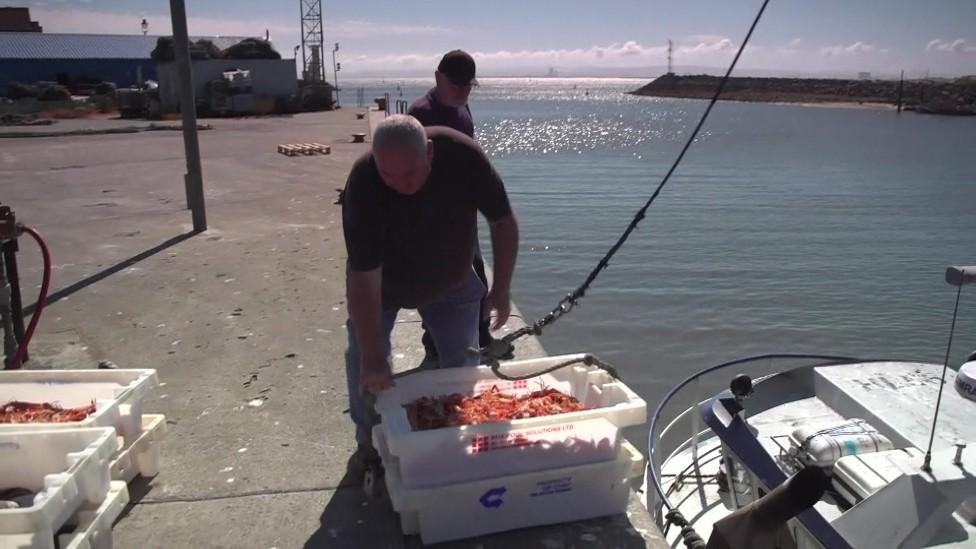
- Published30 March 2023
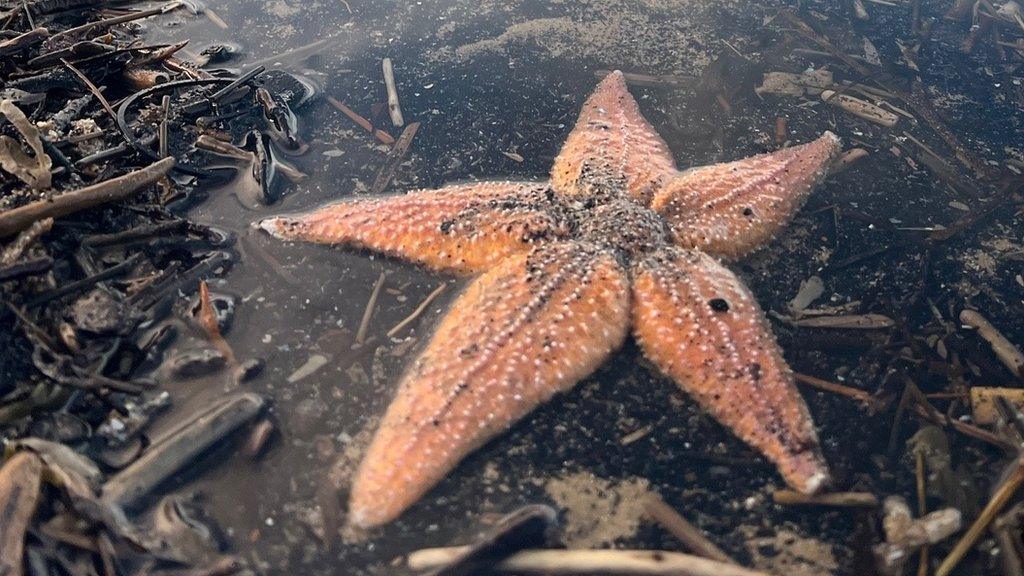
- Published31 January 2023
